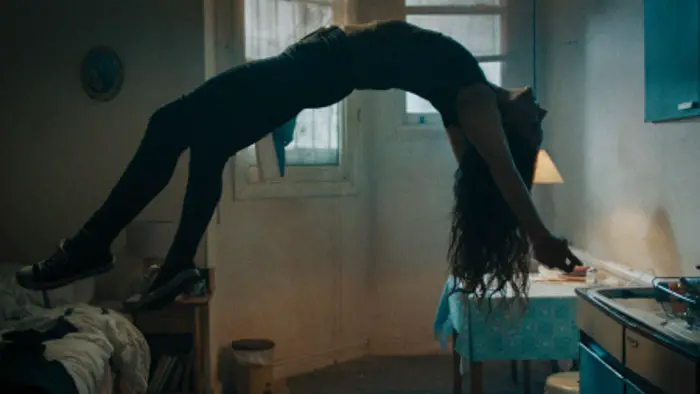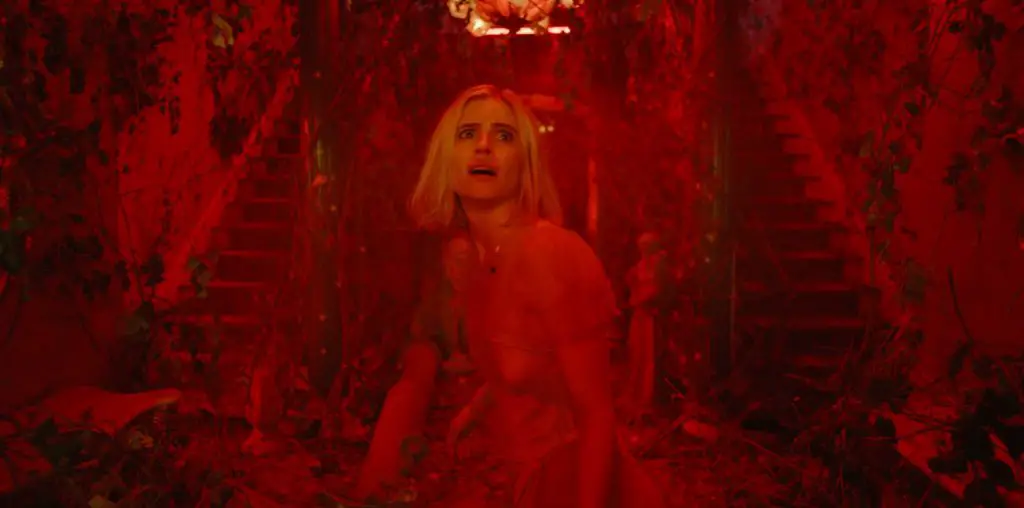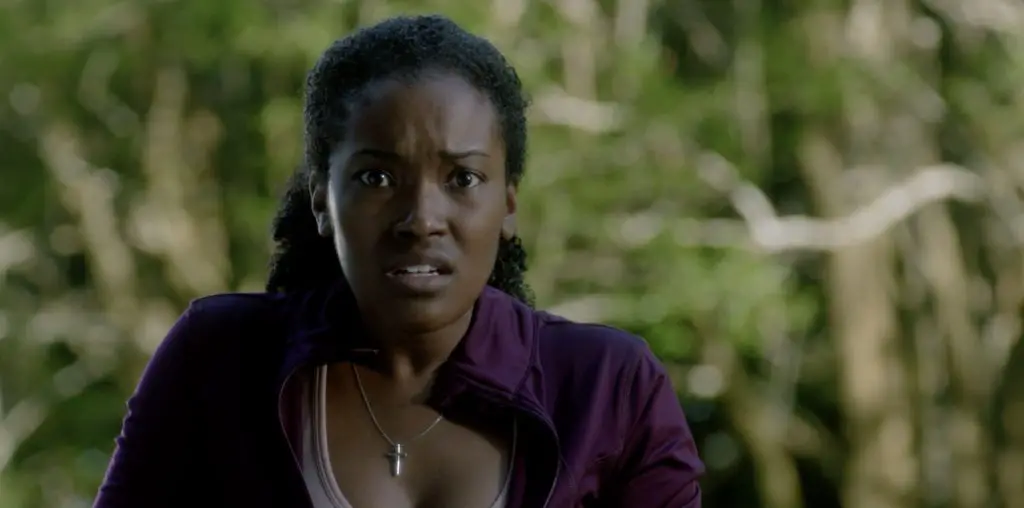
NEW TO HULU! In the United States, A24 has been touting Saint Maud as the next successor in the company’s horror hit parade, following in the footsteps of The Witch, Hereditary, and Midsommar. But labeling it as such is doing a disservice to writer/director Rose Glass’ daring debut feature. Saint Maud flirts with the horrific but is far more focused on the effects of faith within fragile-minded followers and the consequences of such piety.
Calling it horror will no doubt set some viewers’ expectations to a level that Saint Maud is not interested in reaching. But for those who seek out an atmospheric, measured contemplation on loneliness and a look into a splintered mind as it begins to break will find much to contemplate.
The film opens with a seemingly stigmatic Maud (Morfydd Clark) donned in nursing scrubs and cowering in a corner as a twisted, lifeless body is splayed on a gurney in another corner of the room. Her haunted, hollowed gaze moves from the patient and shifts skyward, searching for something unknown.
Flash forward, we again meet Maud in her cramped quarters, preparing for her new role as a private caregiver. The few items that adorn her bleak dwelling are a hodgepodge of religiosity: a cross, candles, beads, and a small shrine of devotional clippings and images.
Her new job as a palliative nurse takes her to the home of Amanda (Jennifer Ehle), a former dancer debilitated by late-stage spinal cancer. Non-believer Amanda humors Maud and her puritanical proclivities, but Maud sees in Amanda an opportunity for spiritual salvation. The young woman enthusiastically shares with Amanda her rigid rituals but then begins to manipulate the woman’s life to more closely align Amanda to her own “enlightenment.”

“…begins to manipulate the woman’s life to more closely align Amanda to her own ‘enlightenment.'”
When Amanda mocks her during a house party, Maud bursts into violence, which sends her packing back home. She sees the incident not as a psychological crack but more as a test to strengthen her devotion.
Clark, who is required to be front and center in nearly every scene, fully commits to her character and the mental spiral she takes. It’s a role that requires both subtlety and surprising moments of physicality as well. Accompanied by Glass’s assured eye, it’s a captivating ride. It’s all blanketed in a muted shadowy haze by cinematographer Ben Fordesman and accompanied by a spindly score from composer Adam Janota Bzowski that further enhances Maud’s fracturing state.
Yet horror, it is not. Saint Maud is about devotional absolutism and its consequences, hueing closer to the 2014 German drama Stations of the Cross than it does to any of the films mentioned in its marketing. It examines how faith easily slides into fanaticism and the faux-embrace it provides the lonely. As we watch Maud search for signs in anything, threading together her world into some Divine test, Glass derives tension from her desperation and our inability to reach out and bring her back to reality.
Saint Maud clocks under 90 minutes, and while its measured pacing is admirable, we wish we knew more about this poor girl. Once it begins, Maud’s fall occurs with such rapidity that having more time to witness the decline would have made its final scenes land not merely with shock but with greater tragic heft. Still, both Glass and Clark provide enough ambiguity throughout (are we witnessing supernatural influence or the active imagination of an unreliable narrator?) to keep us engaged and marking the debut of a powerful new cinematic voice.

"…Glass derives tension from her desperation and our inability to reach out and bring her back to reality."



[…] Source link […]